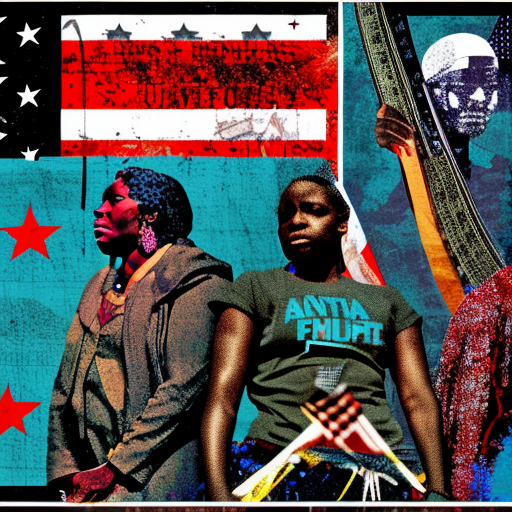One-line summary: A People’s History of the United States is a thought-provoking and eye-opening account of American history from the perspective of marginalized groups, challenging traditional narratives and shedding light on the struggles and triumphs of ordinary people.
The Untold Stories of American History
In “A People’s History of the United States,” historian Howard Zinn presents a compelling alternative to the traditional narrative of American history. Rather than focusing solely on the actions of political leaders and the elite, Zinn delves into the experiences and perspectives of ordinary people, particularly those who have been marginalized and oppressed throughout history. Through this lens, Zinn exposes the darker side of American history and challenges readers to question the dominant narratives that have shaped their understanding of the nation’s past.
Zinn begins by exploring the arrival of Christopher Columbus in the Americas, debunking the myth of his discovery and highlighting the devastating impact of European colonization on Indigenous peoples. He then delves into the struggles of early settlers, including the conflicts with Native Americans and the exploitation of indentured servants and enslaved Africans.
The Fight for Equality and Justice
Throughout the book, Zinn highlights the various social movements that have shaped American history and fought for equality and justice. He discusses the labor movement and the struggles of workers against exploitative conditions, as well as the women’s suffrage movement and the fight for gender equality. Zinn also examines the Civil Rights Movement, shedding light on the grassroots activism and the courageous individuals who fought against racial segregation and discrimination.
Zinn’s narrative challenges the notion of progress as a linear and inevitable process, emphasizing that change is often the result of collective action and resistance. He highlights the power of ordinary people to challenge oppressive systems and effect meaningful change, while also acknowledging the ongoing struggles for justice that persist to this day.
A Critical Examination of Power and Empire
In addition to focusing on social movements, Zinn critically examines the role of power and empire in American history. He explores the motivations behind U.S. military interventions abroad, from the Spanish-American War to the Vietnam War, and the devastating consequences of these actions on both American soldiers and the populations of other nations.
Zinn also exposes the ways in which the American government has suppressed dissent and marginalized dissenting voices throughout history. He discusses the Red Scare and McCarthyism, as well as the FBI’s surveillance and harassment of civil rights activists and anti-war protesters. Through these examples, Zinn highlights the importance of maintaining a critical eye towards those in power and the need for an engaged and informed citizenry.
Key Takeaways:
- Zinn challenges traditional narratives of American history by focusing on the experiences and perspectives of marginalized groups.
- He highlights the power of social movements in effecting change and fighting for equality and justice.
- Zinn critically examines the role of power and empire in American history, exposing the consequences of U.S. military interventions and the suppression of dissent.
“To be hopeful in bad times is not just foolishly romantic. It is based on the fact that human history is a history not only of cruelty, but also of compassion, sacrifice, courage, kindness. What we choose to emphasize in this complex history will determine our lives.”
– Howard Zinn
In “A People’s History of the United States,” Howard Zinn presents a thought-provoking and comprehensive account of American history from the perspective of marginalized groups. By challenging traditional narratives and shedding light on the struggles and triumphs of ordinary people, Zinn encourages readers to critically examine the dominant narratives that shape their understanding of the nation’s past. Through the stories of social movements, the fight for equality and justice, and a critical examination of power and empire, Zinn emphasizes the power of collective action, the ongoing struggles for justice, and the importance of maintaining a critical eye towards those in power.












